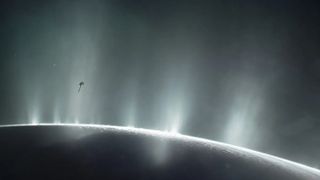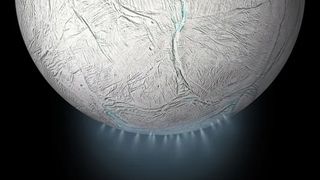Saturn
Latest about Saturn

There's a weird, disappearing dark spot on Saturn's moon Enceladus
By Monisha Ravisetti published
"After staring at dozens and dozens of image pairs, she found something interesting."

We might have been completely wrong about the origin of Saturn's rings, new study claims
By Patrick Pester published
Computer modeling suggests Saturn's rings are billions of years older than previous research suggests — but the new findings are up for debate.
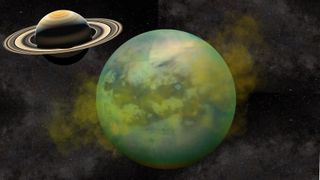
Saturn's moon Titan may have a 6-mile-thick crust of methane ice — could life be under there?
By Robert Lea published
A 6-mile-think shell of methane ice on Saturn's moon Titan could assist in the hunt for life signs arising from this moon's vast subsurface ocean.
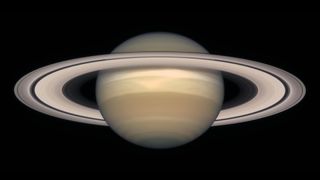
Saturn at opposition: How to see the ringed planet at its biggest and brightest this week
By Gretchen Rundorff published
Saturn will enter opposition on Sept. 7 and 8, orbiting on the opposite side of Earth as the sun. Here's everything you need to know to spot Saturn at its peak size and brightness this week.
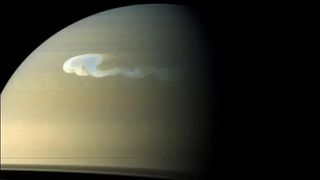
Saturn's planet-wide storms driven by seasonal heating, Cassini probe reveals
By Sharmila Kuthunur published
Saturn pumps into space varying amounts of heat based on its seasons, which drives planet-wide storms, data from NASA's Cassini mission has revealed.
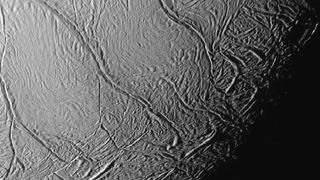
Enormous 'San Andreas fault' on Saturn's moon could help reveal signs of alien life
By Robert Lea published
Huge "tiger stripe" fault lines seen on Saturn's moon Enceladus raise hopes that a "long-lived" ocean containing potential alien life may lurk beneath the moon's icy shell.
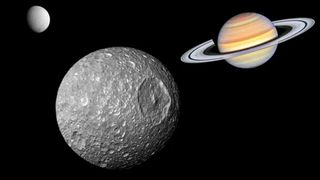
Saturn's 'Death Star' moon Mimas may have an underground ocean scientists never believed could exist
By Robert Lea published
A new study of Saturn's 'Death Star' moon Mimas finds evidence of a young, underground ocean that may be hospitable to early forms of life.
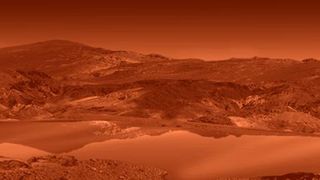
Mysterious 'magic' islands that come and go on Saturn's moon Titan finally have an explanation
By Briley Lewis published
Bright spots that appear and vanish on Saturn's moon Titan have a seemingly simple explanation — they're floating chunks of frozen organic material.
Sign up for the Live Science daily newsletter now
Get the world’s most fascinating discoveries delivered straight to your inbox.
